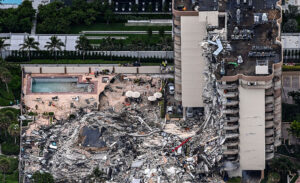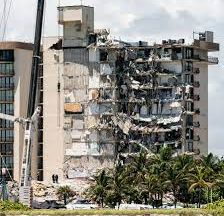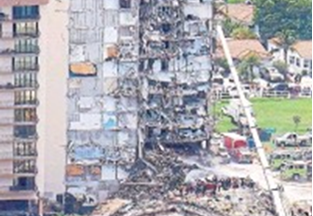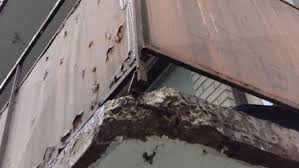 March 2022
March 2022
A report looks at how residential building failures can be prevented such as what occurred at the Champlain Towers South condominium, Florida in 2021. Community Associations Institute (CAI) convened three task forces of nearly 400 reserve fund specialists, attorneys, insurance experts, property managers, engineers, architects and homeowners conducting research surveys and interviews to better understand how communities can prevent a future building collapse.
Despite being aware of major structural damage, Champlain Towers South was unable to undertake $9 million (US) in repairs. Owners were unwilling to pay special assessments ranging from $80,000 (US) to $330,000 (US).
The 56-page report is titled Condominium Safety: Reserve Studies and Funding, Maintenance and Structural Integrity.
A main recommendation is that reserve fund studies and prescribed levels of reserve funding be mandated similar to what exists in Ontario. In the United States, reserve fund studies are required in only nine states, and reserve funds in 11 states.
Another recommendation is for stricter rules on building inspections, including a first inspection of a newly constructed building no more than five years after occupancy; an inspection of buildings more than 10 years old within two years of passage of the law; and follow-up inspections every 10 years for the first 20 years of a building’s life, then every five years after that. Ontario requires that a reserve fund study must be done every three years. A Class 1 (comprehensive) study, the most extensive, is only required for a new building.







